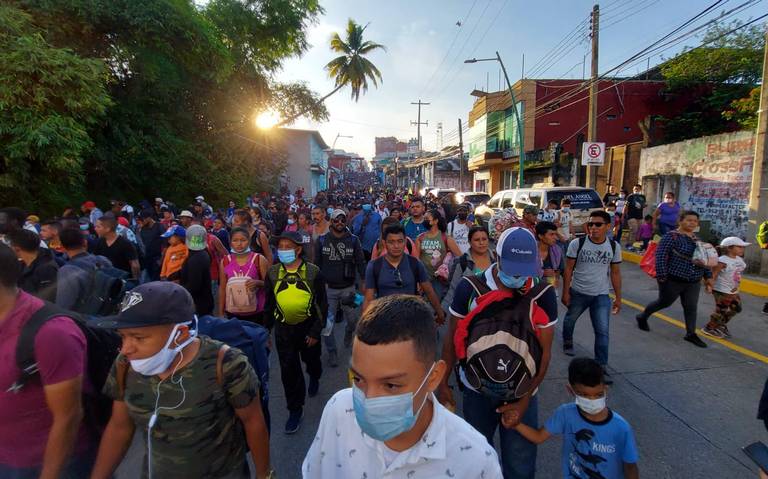ACAPULCO, Mexico (AP) — About 100 migrants from various countries wandered directionless and disoriented through the streets of Acapulco’s troubled Pacific coast resort.
After walking for a couple of weeks through southern Mexico with hundreds of other migrants, they accepted an offer from immigration officials to come to Acapulco with the idea they could continue their journey north toward the U.S. border. Instead, they found themselves stuck on Monday.
Two weeks ahead of President-elect Donald Trump’s second inauguration, Mexico continues dissolving attention-grabbing migrant caravans and dispersing migrants throughout the country to keep them far from the U.S. border, while simultaneously limiting how many accumulate in any one place.
The policy of “dispersion and exhaustion” has become the center of the Mexican government’s immigration policy in recent years. Last year succeeded in significantly reducing the number of migrants reaching the U.S. border, said Tonatiuh Guillén, former chief of Mexico’s immigration agency.
Mexico’s current administration hopes that the lower numbers will give them some defense from Trump’s pressures, said Guillen, who left the administration of former President Andrés Manuel López Obrador after Trump threatened to impose tariffs over migration during his first presidency.
Acapulco would seem to be a strange destination for migrants. Once a crown jewel of Mexico’s tourism industry, the city now suffers under the thumb of organized crime and is still struggling to climb back after taking a direct hit from devastating Hurricane Otis in 2023.
On Monday, Mexican tourists enjoyed the final hours of their holiday beach vacations while migrants slept in the street or tried to find ways to resume their journeys north.
“Immigration (officials) told us they were going to give us a permit to transit the country freely for 10, 15 days and it wasn’t like that,” said a 28-year-old Venezuelan, Ender Antonio Castañeda. “They left us dumped here without any way to get out. They won’t sell us (bus) tickets, they won’t sell us anything.”
Castañeda, like thousands of other migrants, had left the southern city of Tapachula near the Guatemalan border. More than a half dozen caravans of about 1,500 migrants each have set out from Tapachula in recent weeks, but none of them made it very far.
CLICK HERE TO READ THE FULL ARTICLE ON AP
TYT Newsroom


